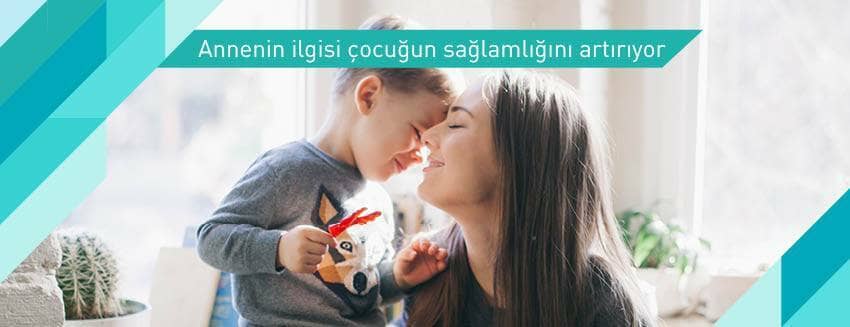
Stating that the relationship between mother and child has very important effects on the child's development, experts emphasize that this relationship should be balanced and consistent. According to experts, it is important for the mother to give attention and protection consistently and consistently, the mother's attention should be uninterrupted but her protection should not be excessive. Children raised in this way are more robust in life.
Üsküdar University NPISTANBUL Hospital Specialist Clinical Psychologist Çiğdem Demirsoy pointed out that the relationship with the mother is very important in the development of the child.
Stating that motherhood is very sacred and that the mother is the most important element in the child's life, Specialist Clinical Psychologist Çiğdem Demirsoy said:
"While the father is the protector, the authority who draws boundaries, the mother is the object of love and develops the positive behaviors of the child. The role of the mother is very important in the upbringing of the child. In the absence of the mother, the healthy communication of the primary caregiver with the child is also very important. Although it is not yet proven, the bond between the child and the mother starts during pregnancy. In order for the mother-child relationship to be healthy, it is very important that the mother gives attention and protection in a continuous, consistent and balanced manner."
Balanced attitude strengthens the child
Çiğdem Demirsoy stated that the mother's continuous and consistent care and protection affects the child's personality and said, "Children who are cared for in this way are more robust in life. If there is neither too much nor too little protection, if the mother is sensitive to the needs of the child and gives enough attention, it significantly affects the psychological stability of the child."
Mother prepares the child for life
Pointing out the importance of the pregnancy period, Specialist Clinical Psychologist Çiğdem Demirsoy said, "The mother's taking care of herself during pregnancy is a sign of sensitivity towards her baby. If the child is picked up every time the child cries, you may even be teaching the child to cry. The attention should be uninterrupted but the protection should not be excessive. The mother's duty is to show interest in the child, give love and prepare him/her for life."
Overprotection harms the child
Stating that an overprotective attitude will not improve the child's problem-solving skills and that the child must be given responsibility, Specialist Clinical Psychologist Çiğdem Demirsoy said:
"If the mother takes every responsibility on herself and does it for the child, the child grows up without taking responsibility. If the mother is overprotective, the child will not develop problem-solving skills. This is not healthy and leads to addiction. The child should be raised with healthy boundaries and excesses should be avoided. There may be protection from certain dangers at a young age, but during adolescence, the previously established bond may weaken somewhat. This is normal. Conflicts may start because the child wants to be more independent. It is necessary to be prepared for this and to allow it so that there is no conflict. We should know the stages of human development and communicate accordingly."
The child is not an extension of the mother
Emphasizing that the communication style of the mother with her child forms the basis of the child's communication with his/her environment, Specialist Clinical Psychologist Çiğdem Demirsoy said, "We have a culture that allows less opportunity for individualization. We think about their needs, we decide for them. They should not be our extension," she warned.
They should learn to fall and get up
Emphasizing that the child should be taught problem solving skills, Demirsoy said, "We need to ensure that the child acquires the habit of problem solving. If a healthy bond is formed between the ages of 0-2, the following processes are easier. The child should feel safe and comfortable in environments where needs are met and not overprotected. If you do not allow him/her to fall, he/she cannot learn to get up. In order to learn not to fall, the child has to fall. If there is a secure bond, the child will not break and will share their troubles. If we do not allow independence, the child always wants to get away. Then there will be conflict," he warned.
